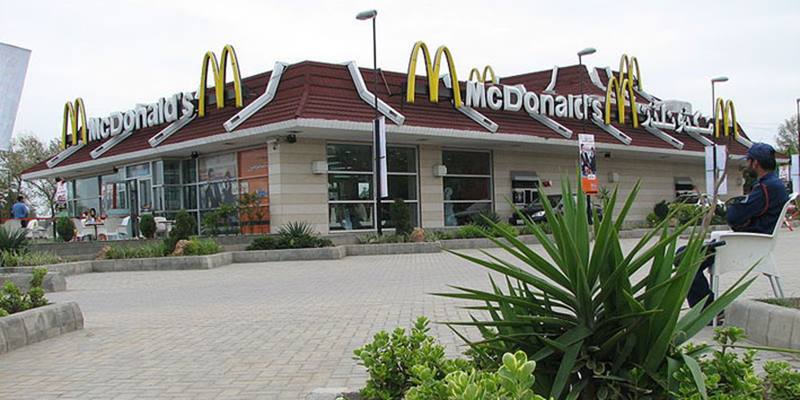My piece for The News:
The recent decision of the Supreme Court to order closure of a multinational food chain restaurant in Islamabad is path-breaking
It has become a clichè to praise the Supreme Court of Pakistan these days. Clichèd, because many partisan agendas find resonance within the all-embracing spectrum of judicial activism. Those who have been critical of judges turning into activists must rethink their misgivings. While the dangers of such blanket approval of the workings of a state institution are apparent, it is still a welcome change in a country known for its culture of impunity. This is why the recent decision of the mighty Supreme Court to have ordered the closure of a multinational food chain restaurant in Islamabad’s ill-designed public park is path-breaking.
First of all, the fact that a municipal matter reached an overburdened superior court speaks much about the dysfunctional executive that manages our lives. That the court had the wisdom to uphold the rights of ordinary Islamabadites marks a new beginning which, if taken to its logical end, would mean that all public spaces in Pakistan should come under intense judicial scrutiny. Lastly, the court’s effort to enforce accountability could very well turn out to be a new beginning in our murky public affairs.
Effective municipal management requires that we revisit the urban governance frameworks that are now outdated to handle the population growth, changed needs of the population and dwindling state capacity to enforce regulations. Notwithstanding that Islamabad is fifteen kilometres away from the real Pakistan, the management practices are no different from the rest of the country. Essentially, the Islamabad saga reveals a case of serious governance failure.
That the policy-makers and urban managers had the audacity to colonise public spaces for the nefarious alliance of a multinational corporation and the national elites is disturbing, to say the least. The sham ‘citizens’ club which has consumed billions from public money boasted a cigar room. One wonders how many ordinary citizens of Pakistan would have access to an imported cigarette, let alone an expensive imported cigar. However, the most worrying revelation pertained to the flouting of environmental, urban, and municipal rights through executive vandalism in the heart of Pakistan’s posh capital. This is why we ought to be thanking our stars. The judgment makes a categorical reference to how the laws were twisted:
“It was submitted that the complex in question which involved construction of a huge building with an initial estimated cost of Rs1500 million; which involved use of roads in a residential locality by a large number of additional persons and vehicles visiting the said plaza and which also involved a change of land use, fell within the purview of a `Project’ as defined by section 2(xxxv) of the Pakistan Environmental Protection Act No.XXXIV of 1997 and in view of the provisions of section 12 of the said Act of 1997, the very commencement of its construction without filing an initial environmental examination with the Federal Agency and without its approval regarding the environmental impact assessment, was grossly illegal and was even a culpable offence under the said Act. This-issue also requires examination.”
Those who are complaining about the disincentive for foreign investors through this development are providing lame justifications for ignoring the welfare of Pakistanis to serve the needs of a few. Not only was this restaurant given preferential treatment, but the Capital Development Authority destroyed a green belt to ensure easy access to a consumerist outlet known for its pernicious food and unethical practices worldwide. For instance, in the West, the Mecca of the Pakistani elites and wannabes, the restaurant has come under severe attack for flouting food regulations, animal rights, and contributing to obesity. Is this the mode of development that we wish to ape in Pakistan? Talk of misplaced priorities. The verdict of the Supreme Court in para 36 aptly states:
“… The building in question which was intended to be a huge complex was being constructed at the site without the sanctioning of its plans by the competent authority. The plea of the respondents was that construction of government buildings did not require sanctioning of their building plans. The question is whether there was any law exempting government building from the operation of the said legal requirement and question would also be whether a building constructed by the said company which was an independent legal entity having been incorporated as such under the Companies Ordinance of 1984, could be said to be a Government building?”
Suffice it to say, that this is a landmark decision. Karachi is an urban mess where all public spaces — especially parks — have been gobbled up by greedy builders and developers often with the collusion of local authorities. Lahore has been saved mercifully for its major parks have survived but most new settlements interpret a public space as a community centre or a wedding hall. Greening of the cities is a lost agenda in the land of the pure. The Supreme Court’s settling of principles and issues should serve as a touchstone for the provincial High Courts. It is also hoped that the civic groups now take proactive stance vis-à-vis public interest litigation. At the same time, burdening the already over-stretched courts may not be all that sensible. The executive authorities need to act and enhance their capabilities.
This brings us to the urgent imperative of reviving a robust local government system that has become dormant during the last few years. Musharraf’s devolution should not be unravelled just because a man hated by the politicos created it. There were some sound principles established and the shortcomings, which are plenty, can be rectified through improved policy and legislative frameworks. The critical issue is to make both the elected and the executive officials accountable and answerable for their decisions. Also, centralised provincial agencies cannot manage the daunting task of municipal management. Local authorities have to be assigned these functions. This is what the best practices from all over the world, including Asian experience, tell us.
Coming back to the Supreme Court judgment, with utmost respect to the honourable Court, the responsibility for this ungainly act does not lie with “individuals”. There is much more rot in the state of Denmark than a couple of bureaucrats who are rough and ready scapegoats for systemic failures. Let’s face it: the executive arm of the state is dysfunctional and collapsing. CDA is not an autonomous entity as its workings are micro-managed by presidents, prime ministers and the maverick interior ministers. Where were hundreds of “legislators”, ministers, advisors and generals, when F-9 park was being disfigured? Taking action against one or two officials would be akin to administering aspirin to a cancer patient.
What is required is the inclusion of the citizenry in Islamabad’s public decisions, updating a decades’ old regulatory framework designed when the capital was a tiny, sleepy haven for myriad babus. Finally, by introducing transparency in public procurement systems and making all awards open through the internet and other means, half the problem could be solved.
It is ironic that the former chairman of CDA happens to be a dynamic civil servant of our times. He has a reputation to deliver against incredible targets. It is, therefore, sad to see how our system rewards the bureaucrats who are keen to maintain a state of inaction. Maybe “getting things done” in Pakistan requires bypassing layers of officialdom that are created to feed into the royal state of the status quo. It would, therefore, be sad if the bureaucrat in question is punished and his technocratic and military lords and masters are allowed to sip their Brazilian coffees and puff their Havana cigars offshore. Let there be accountability across the board. Bureaucrats are implementers and not, to use a Bushism, the ‘deciders’ these days. What else can one submit to those who decide for us?
The writer is an editor and policy analyst based in Lahore. He blogs at www.razarumi.com



